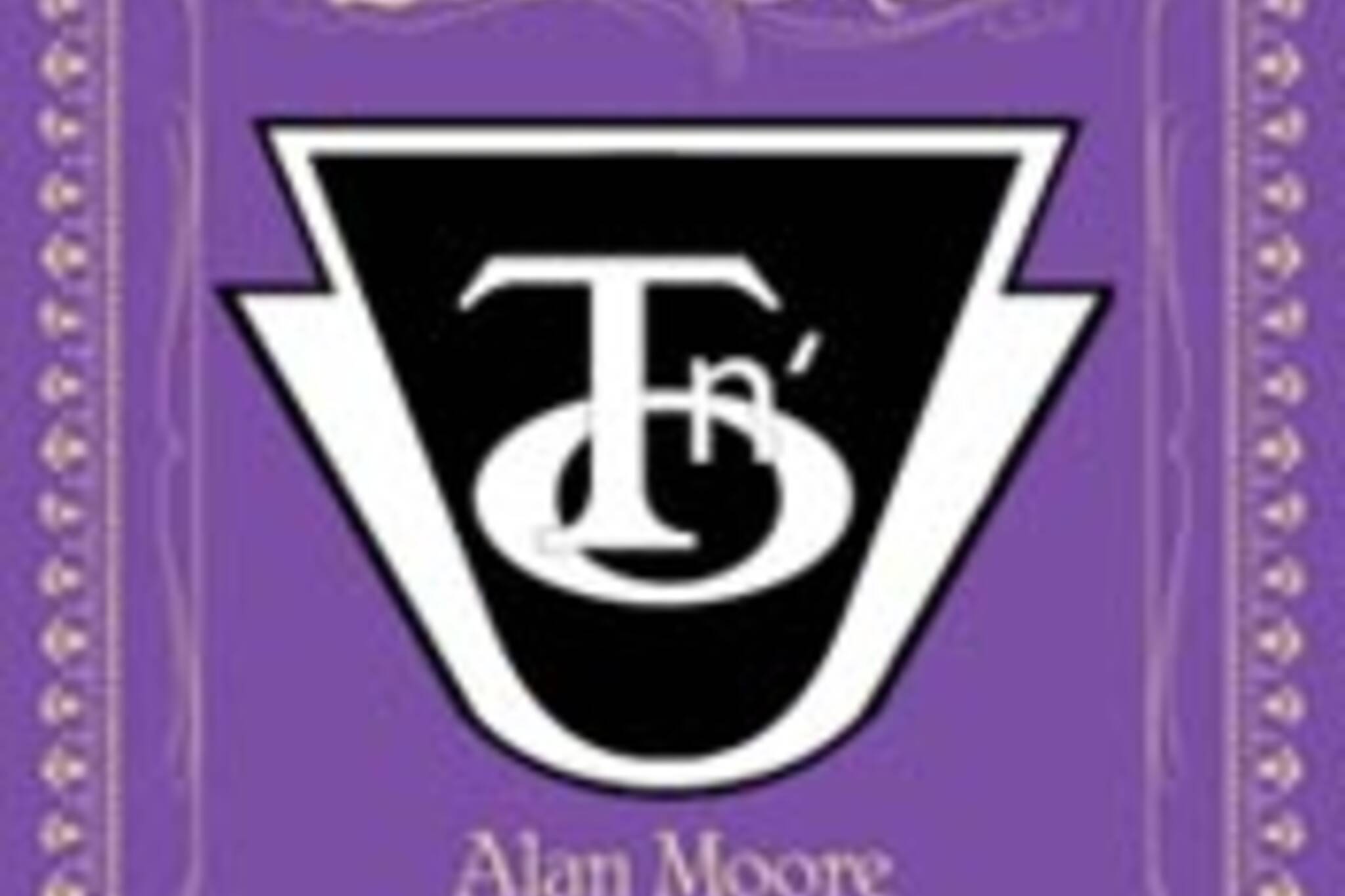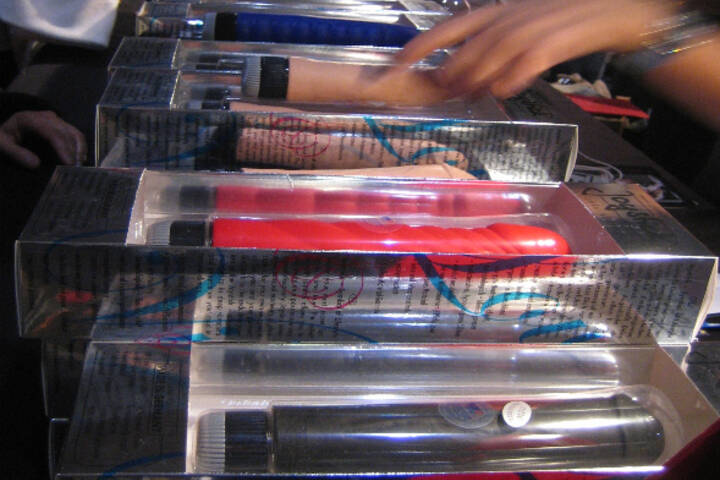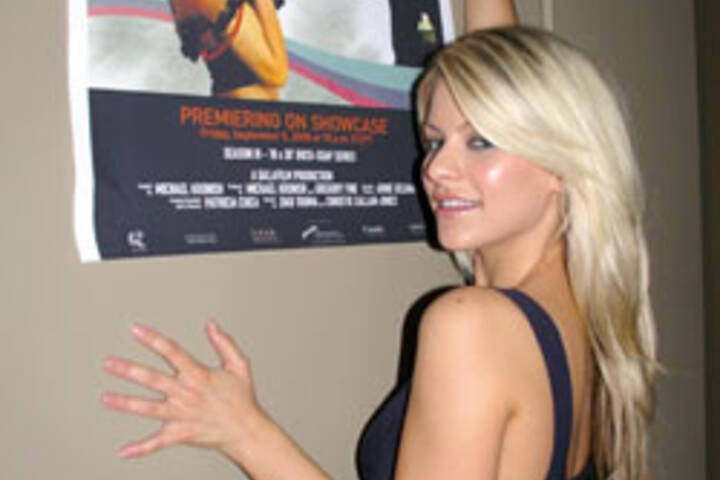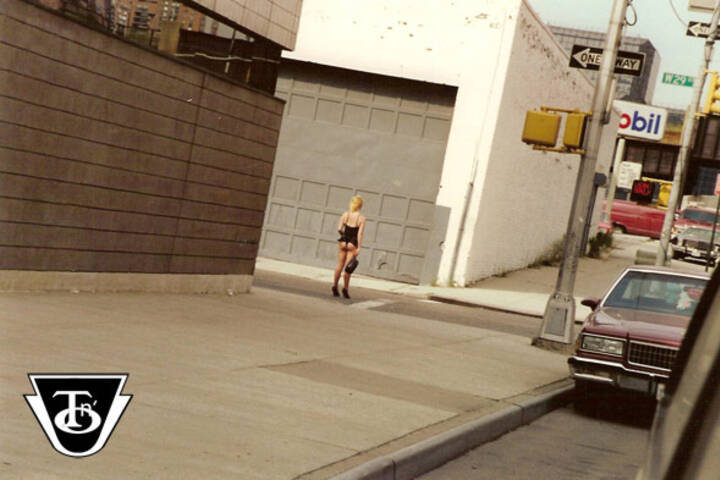
Sexy fantasy heroines not welcome here.
Ordinarily, comic books + sex = one happy 12-year-old. Lately in Toronto, however, it's also meant controversy, backpedalling, and more than a bit of legal trouble.
The comic book (ahem, "graphic novel") in question is called Lost Girls, and it's the latest work by a writer whom many consider to be the finest in the field: Alan Moore. He gave us Watchmen, V for Vendetta, From Hell, The League of Extraordinary Gentlemen, and many other brilliant works of comic art that have been butchered into piss-poor Hollywood movies.
With Lost Girls - which Moore has been working on for 16 years with his life partner, Melinda Gebbie - he's given us something new again: unabashed pornography. (Moore makes no bones about this: the book is meant to turn you on and get you off.) And although Lost Girls is quantifiably a work of art that deserves serious consideration in the medium of graphic novels, you won't find it in Toronto.
I suppose it's understandable that so many people are freaked out. Lost Girls is about three of the most beloved fantasy heroines of all time: Wendy from Peter Pan, Dorothy from The Wizard of Oz, and Alice from Alice in Wonderland. As adults, the three of them get into crazy erotic fun and storytelling at a hotel in Austria in 1914. (The just-pre-WWI time frame is significant.)
Even if this setup weren't enough to have Walt Disney spitting blood at his coffin-lid, however, the real danger zone is that Moore has used Lost Girls as an opportunity to explore the sexual coding that was (let's face it) fairly blatant in the original stories. He's decided that the fantasy lands of the books - Oz, Never Never Land, and Wonderland - could be interpreted as metaphors for sexual euphoria and coming of age. And since describing such metaphors involves depicting the sex lives of characters who would have been, at those points in their fictional lives, in their early teens, the resulting novel is stunningly prurient.
It's also a hell of a turn-on. I think any thinking, breathing human would be hard-pressed to find something in Lost Girls that didn't get their tissues throbbing at least a little bit, given that in the course of three volumes, the work essays just about every fetish and paraphilia ever invented, except that one Tracey Ullman came up with in Dirty Shame.
I'm one of the lucky ones: I did find Lost Girls in Toronto. The release of the graphic novel in September was attended by genuine concern throughout the comics industry as to whether the book would even be allowed into Canada or the U.S. (it originates in the U.K.). Surprisingly, the Americans did fine, but Canada got locked out: Canada Customs has declared the work pornographic and has halted shipments into the country.
The Beguiling, which has never shied away from carrying works that will appeal to grown-ups as well as to kids, brought Lost Girls into the city anyway under mysterious circumstances, and quickly sold out of their first printing.
When I called The Beguiling a couple of weeks ago to ask after additional copies, though, I was told that the publisher had explicitly asked them to stop selling Lost Girls in Toronto, until their appeal against Canada Customs can go through. In the meantime, Chapters has put a hold on all orders for the book in Canada, and most of the other comic book stores in the city won't stock it, or weren't ever planning to.
The Silver Snail, known the world over as one of the best comic book stores in North America, wouldn't touch Lost Girls with a ten-foot cattle prod, saying that theirs is a family store, and Lost Girls is not family material.
(The Silver Snail does, I must note, carry issues of Grant Ellis' The Boys, the most recent of which featured a Teen Titans-style group having a superpower-amped orgy with the ladies of a local whorehouse, and included vivid descriptions of the damage to a prostitute's body that having sex with a superhero can cause.)
Obviously, hypocrisy is thick on the ground when dealing with any sort of art of Lost Girls' stripe. And yes, any liberal-mindedness on my part does in fact fall secondary to my understanding that there many taboos - particularly around young people and sexuality - that nobody likes to see pushed.
In Lost Girls' case, however, I'm still rankled by the myopia. Moore's artistic thesis, about the role of fantasy vs. reality in our sexual selves, couldn't be more plain; to see his book struck down as smut and taken away from intelligent readers in this city and elsewhere is a painful thing.
Unequivocally, Alan Moore is aiming to arouse with Lost Girls; as usual, he is also an equal-opportunity revolutionary with his guns set on (in this case) war-mongering, sexual conservatism, religious supermorality and the patriarchal domination of women. He's no dummy. And with a work of this magnitude, shouldn't readers have the opportunity to judge - and think - for themselves?
Latest Videos
Latest Videos
Join the conversation Load comments






